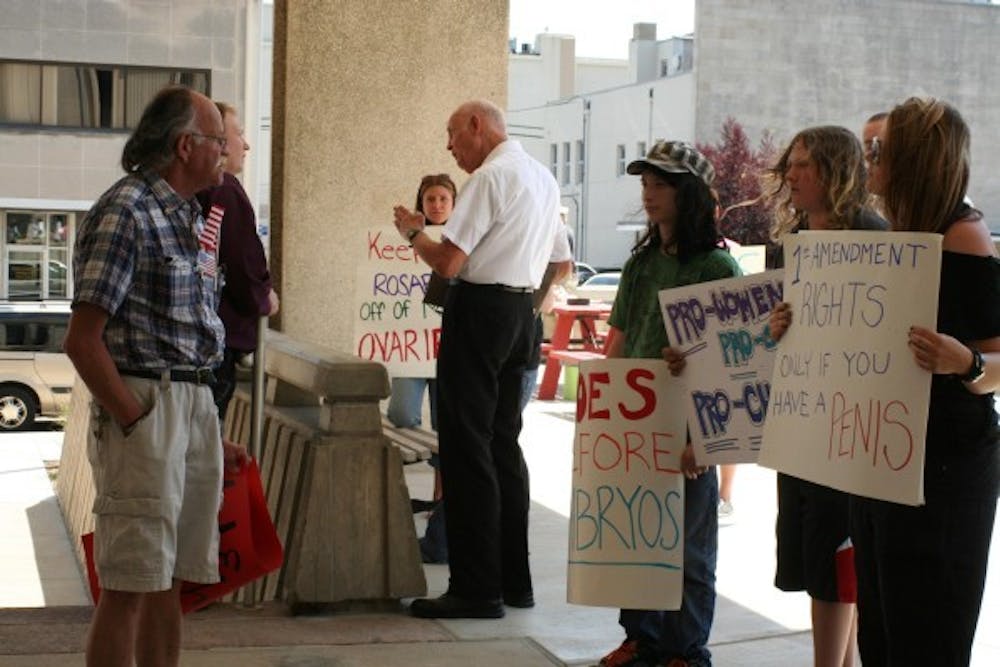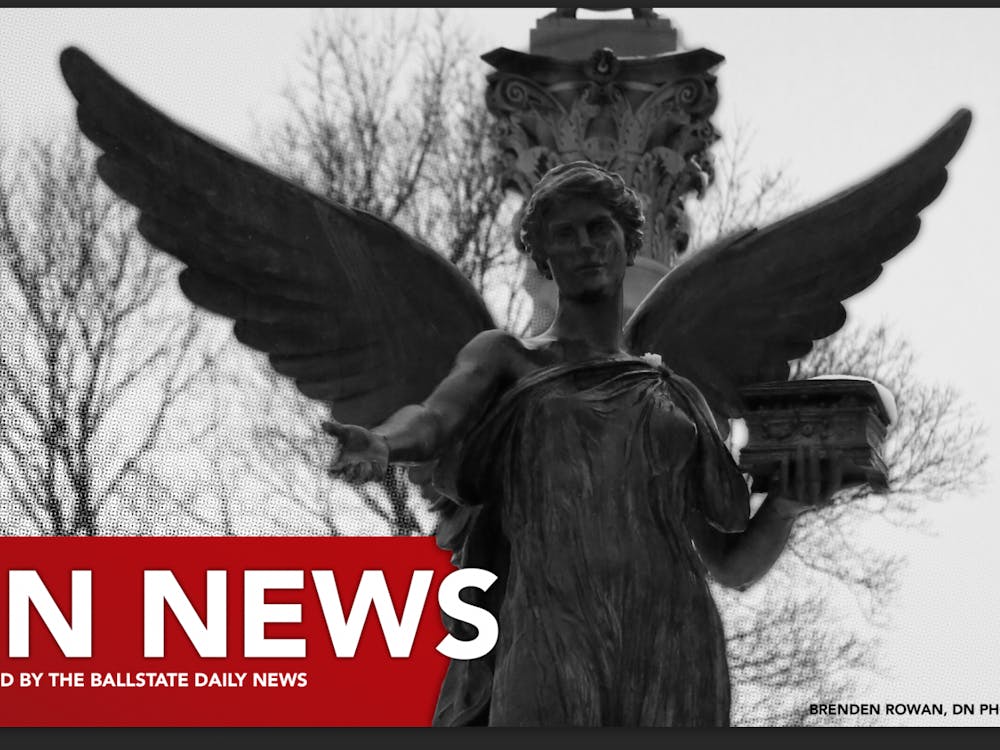As the Supreme Court approaches a monumental decision with the Affordable Act of 2010, its opposition and supporters are growing heated as rallies and protests become more frequent.
On Friday, a rally was organized by the Pro-Life Action League at the Delaware County Building from noon to 1 p.m. to protest the U.S. Department of Health and Human Services mandate, a specific piece of the Affordable Act legislation.
The HHS mandate is a bill that ensures women the right to preventative health care, including contraception, which has struck a cord with the religious community, largely because of the Catholic Church's long-standing stance on contraception.
Mark Sherfick, a captain for Muncie's rally, said the mandate violates the First Amendment because it violates religious freedom.
"The First Amendment gives us free expression of religion," Sherfick said. "If your established religion says those things are wrong: they violate life, they end life in terms of abortion, they're not preventative care. Some would argue contraception is [preventative care]. It prevents pregnancy. Contraception prevents pregnancy and pregnancy is not a disease."
About 30 people protested the mandate and another group protested for women's rights in opposition, organized by the Ball State Feminists for Action.
Erin Tuegel, a Ball State graduate and former president of Feminists for Action, said the group was out there supporting women who do use contraception.
The protest began heatedly but cooled down after Sherfick began talking to members of the other protest in order to allow the organized speakers to be heard.
"Considering they were yelling and screaming right when I was in the middle of my speech, that made it very difficult for me," Teresa Robertson, a speaker during the rally, said. "I feel that they have every right to stand here as much as we do. They have every right to have their voices heard."
Students in the organization weren't the only ones there though. Among the protesters, there were two students from the Burris Laboratory School and Alice Bennett, a retired Ball State professor.
Bennett said she has supported women's rights since she was 13 or 14 and was out there to show that the mandate doesn't infringe on religious freedoms.
"I think in coming out and talking with people, to show that religious freedom is not freedom to interfere with laws," Bennett said. "We have religious freedom. They used to focus primarily on abortion. They are looking at a broader issue now."
Sherfick said the mandate violates the concept of separation of church and state.
"I think it's wrong and it violates my religious right to morally object to that," he said.
The bill is expected to be heard by the Supreme Court later this month and ensures women access to preventative health care, including contraception.
But both sides agreed that despite their difference, discussing matters and ideas could only be beneficial.
"I think so many people think that an issue is divisive but it may just turn out that you have a whole lot more in common than you don't," Sherfick said.





